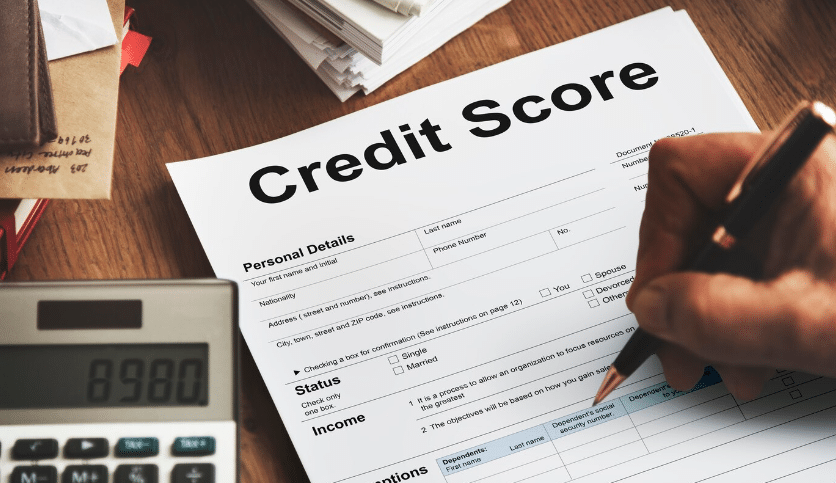There is never an ideal time to get divorced, and separations are challenging for everyone involved — not just because of the emotional strife but also the financial fallout. Fortunately, both parties can take steps to get out of the separation without financial hardship, as some of it relies upon timing.
Can you apply for a divorce?
Firstly, ensure you’re able to make a divorce application. If you were married overseas, you or your spouse must be an Australian citizen or regard Australia to be your primary residence for the last 12 months. Locate your marriage certificate and have it translated by an authorised person if it’s in a foreign language.
If you have been married for less than two years, attend counselling and receive your counselling certificate. After you’ve completed the necessary steps, you can apply for a divorce order through the Federal Circuit and Family Court of Australia.
If you want to make your divorce process easier, we can help!
Download our FREE All In One Divorce Checklist for a more detailed guide on the next steps.
5 Best Scenarios
Here are our five best scenarios to help you make the proper arrangements for divorce:
1. When you have minimal credit card debt
Before you consult a divorce lawyer or follow through with a legal separation, you’ll want a complete view of your financial picture, including all joint and individual obligations and debts. In most cases, it is not overly critical to the Family Court when dividing assets and liabilities whether debts are held jointly by both parties or just one.
When the debt was accrued in some circumstances, the Family Law Court may be concerned with when a debt was accrued.
- Before marriage. Debts accrued before marriage are generally considered to be the sole responsibility of the party that incurs them. The exceptions are debts incurred for the benefit of the relationship.
- During the marriage. Debts incurred during a marriage will generally be considered the responsibility of both parties. However, debts not in the interests of the marriage won’t be held against the party who didn’t incur them.
For example, a party may incur significant credit card debt through reckless or wasteful spending. This can come in many forms.
- Gambling. Large sums of money spent on gambling can be considered wasteful, especially if it depletes marital assets significantly.
- Gifts to a Third Party. Substantial amounts spent on gifts or financial support to someone outside the marriage can be scrutinised.
- Excessive Travel. Engaging in luxury travel or frequent trips that are not for the benefit of both spouses, especially when done extravagantly or without the other spouse’s agreement.
Debts incurred after separation may still count as joint liabilities. The determining factor will still be whether the debt is for a joint benefit.
Suppose your ex-partner accumulated significant credit card debt during your marriage. In that case, unless it arose due to reckless or wasteful spending, it would reduce the net value of the combined assets and liabilities during the property division. When your ex-partner stops making payments for the debt before property division finalisation, you won’t be obligated to pay the debt unless you’re a joint borrower or guarantor.

2. When it is a seller’s market
Unless one of you receives your home as part of the separation settlement, you’ll be better financially if you part ways during a seller’s market. Each area is different and will go through various cycles, but look for periods when there is a higher demand than supply for properties in your area.
Selling in a time of increased demand will maximise the value of your home, which will cover your outstanding mortgage and leave enough left over for both of you to share. If the housing market is doing well, an option may be to agree that one of you get the house as part of the property settlement.
How to determine if you’re in a seller’s market
- Quick Sales. Homes selling quickly, often within days or weeks of listing, indicate a substantial market for sellers. If properties are moving fast and receiving multiple offers, it’s likely a seller’s market.
- Multiple Offers. Receiving multiple offers on properties, sometimes above the asking price, strongly indicates a seller’s market. Competition among buyers can drive up prices and create favourable conditions for sellers.
- High Demand. Look for signs of high demand, such as increased buyers, more inquiries, and higher attendance at open houses. High demand relative to supply is a hallmark of a seller’s market.

3. When you have a good credit score
Individuals with a poor credit history may see their credit score worsen during a divorce. This issue generally owes to a couple of missed bills while the agreement is between settlements. If you are moving out of your current home, you will want a credit score to rent or purchase a new home and/or a new car.
Achieving a good credit score
- Payment History. Your history of making timely payments is one of the most critical factors. Late payments, defaults, bankruptcies, and court judgments can negatively impact your score.
- Outstanding Debts. High levels of debt or outstanding loans can negatively affect your credit score. Reducing your debt levels can help improve your score.
- Credit File Information. Your credit file contains details of your credit history, including loans, credit cards, and repayment history. Ensuring this information is accurate and up-to-date is crucial.

4. Before an inheritance
When you are aware of an inheritance coming your way, it is an important variable to consider when approaching a divorce. Whether assets or money inherited after the divorce will be part of the divorce settlement depends on several factors.
Generally, any future asset won’t be considered in the separation agreement when calculating the value of the divisible property. Still, it will form part of any settlement terms as a future financial resource of the party receiving the inheritance if it is close to being acquired.
You should seek tailored advice to consider your circumstances. An inheritance received before you separate is more likely to be shared with your ex after separation, but you should get tailored advice.
Inheritance considerations
- Contribution. The court considers whether the inheritance was intended for one spouse or both. If one spouse receives the inheritance, it may initially be considered their contribution. However, how the inheritance was used during the marriage can also affect its treatment.
For example, suppose the inheritance was used for the benefit of the family, such as paying off a family home mortgage or funding family expenses. In that case, it might be considered a contribution to the marriage by both parties. - Integration into Marital Assets. If the inheritance has been commingled with joint marital assets, it may be treated as a joint asset. For instance, if inheritance money is used to renovate a family home owned jointly, it may be challenging to distinguish it from other marital assets.

5. When your children are in high school
There will never be an ideal time to separate, especially when children are involved. Nonetheless, separating while your children are in high school may be the best time when considering your finances. Service Australia or the Court may require child support paid by one of the parties, but it will only be for a few years.
Child support vs Maintenance
Financial support for children doesn’t necessarily end when they turn 18. It’s vital to understand the applicability of child support and child maintenance.
- Child support. If the child is under 18 and the parent providing primary care needs financial assistance, you may need to pay child support. This can be organised privately or through an assessment from Services Australia.
- Child Maintenance. In some cases, you may need to continue to provide financial assistance after the child turns 18. This is typically when the child needs to complete school or has a disability or illness requiring care.
If you are considering separating from your spouse, we highly recommend having a financial strategy.

To learn more about child support and maintenance, check out our blog: What Is the Difference Between Child Maintenance and Support? (Parents Guide)
Conclusion
In summary, determining the “best” time for a divorce requires carefully considering your emotions and financial situation. While there might not be a perfect moment, deciding when you are financially secure and emotionally prepared can significantly impact the process.
It is crucial to seek personalised advice from a family lawyer to help you move forward. Shanahan Family Law can assist you with that. Contact us!
If you need help with family law matters, contact us for a free discovery call.
Related Articles
- Client Success Stories: How Shanahan Family Law Produces Positive Results In Divorce Cases?
- 11 Helpful Stress Free Steps on How to Get a Divorce in Australia (Updated Guide)
- 9 Important Steps To Follow When Filing For Divorce Online
- Essential Guide for Parents When a Divorce or Separation Involves Children
- How Much Does It Cost for a Divorce in Australia? (Understand Every Fees)

